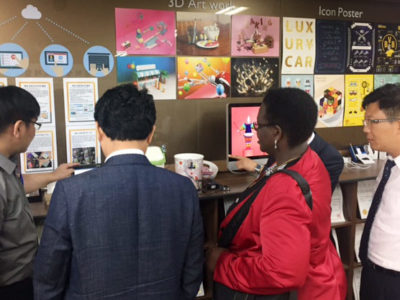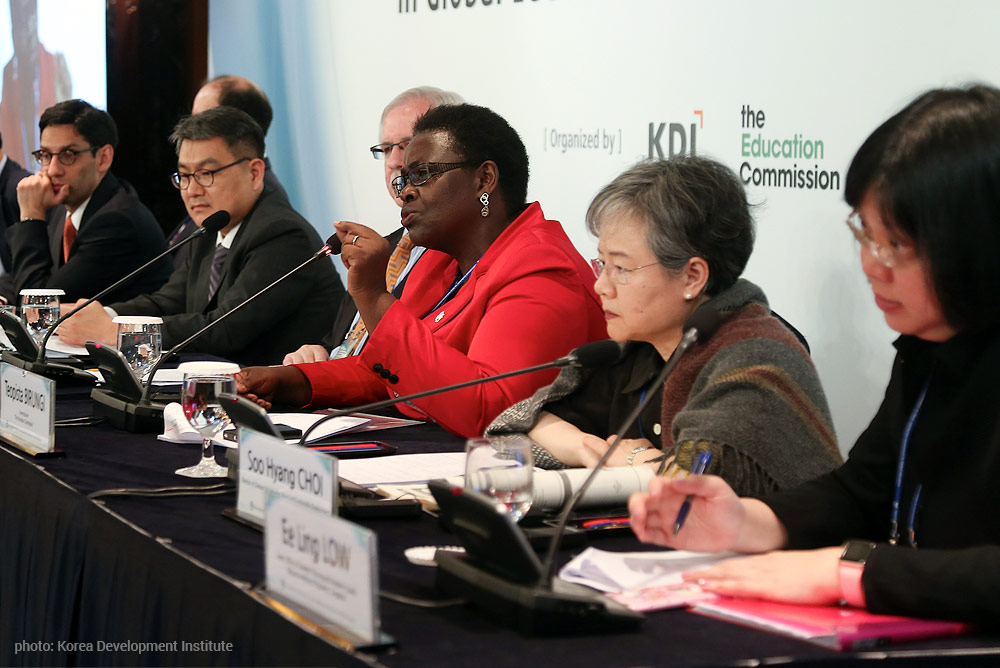The Korea Development Institute (KDI), in collaboration with the Education Commission, organized the International Conference on More and Better Investment in Global Education in Seoul, Korea on June 14, 2016 to bring together policymakers, scholars and experts from various regions and disciplines to discuss the quantity and quality of investments in global education. In addition to sharing opinions and ideas, the conference also explored how Korea’s education experience can provide policy lessons for other countries.
The purpose of the conference was to identify strategies that the international community can develop to enhance global education opportunities focusing on more and better financing for education. The conference placed particular emphasis on education policy experiences in both developing countries, such as Ethiopia, Uganda, Ghana and Mozambique, and developed countries such as Korea. The conference also highlighted Korea’s experience in education, including the role of education in the country’s development process, leadership for policy implementation, and international development cooperation in education.
The conference participants discussed the three main pillars of Korea’s human capital accumulation. The first pillar was the rapid expansion of education with equitable opportunities for all – from basic literacy education right up to higher education. The second pillar involved linking education with economic growth strategies: the need to secure skilled workers for industrial development and, at the same time, provide decent jobs for educated youths. The third pillar emphasized the effective implementation of diverse policies to promote knowledge creation while minimizing brain drain.
We also explored the economic and social significance of vocational education in the development process. Conference participants, myself included, were introduced to the Meister Vocational Schools strategy and the Better Education for Africa’s Rise (BEAR) project for developing countries in the Southern African Development Community (SADC).
We examined a number of strategies and principles that could be adopted by developing countries for their global education goals which were based on the following questions:
- If money/financing indeed does matter in education, why haven’t people or governments acted and increased education investment to the required levels?
- What is the biggest obstacle in obtaining quality education in developing countries? How can we overcome this?
- Are trends in tests scores and standardized tests an effective way of measuring education quality?
- For those countries that have made the greatest improvement in education in recent years, what have been the critical factors for their success?
- What will be the most important (new) sources of finance for global education over the next decades? How can these sources be harnessed?
Having had the privilege to speak during the session on the Korean experience, I sought to answer these questions and more during my portion of the discussion. I tried to make three points close to my heart very clear. First, education is both a right and a public good – it is not a private matter for private benefit. What’s more, it is our duty as representatives of teachers’ unions to speak up for public education and to lobby for and demand quality public education for all.
Second, we should champion groundbreaking, constructive proposals on how to further fund investment opportunities for education. We should unite to challenge international assessments and the narrowing of national curricula promoted by some donors (e.g. through financing for results and other conditions), testing companies and similar private providers. But at the same time we need to be wary of for-profit testing companies whose sole aim is to make money. These firms are not interested in the overall improvement of education quality but in maximizing profits.
And third, it is our duty to be at the forefront of the fight against the casualization and de-professionalization of our profession. This means standing up against employment of unqualified para-teachers who are considered to be “cheaper” to maintain. The lesson is clear: we need quality teachers for quality education.

Commissioner Teopista Birungi Mayanja during a school visit in Seoul, Korea.
Teopista Birungi Mayanja is the Founder of Uganda National Teachers’ Union (UNATU) and Deputy Director of Education Services at the Kampala Capital City Authority.

